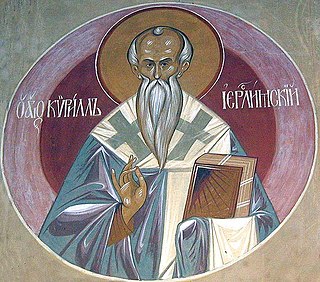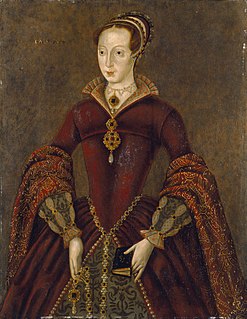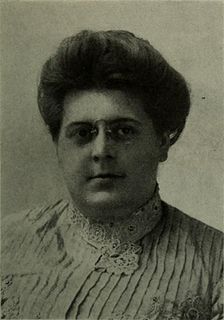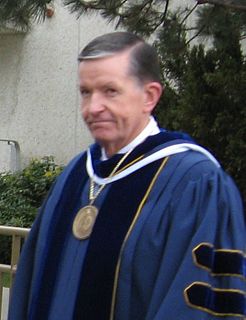A Quote by William Tyndale
Christ made the bread the sacrament of his body only: wherefore as the bread is no similitude of his blood, so am I not bound or ought to affirm, that his blood is there present.
Related Quotes
Since Christ Himself said in reference to the bread: "This is My Body," who will dare remain hesitant? And since with equal clarity He asserted: "This is My Blood," who will dare entertain any doubt and say that this is not His Blood?... You have been taught these truths. Imbued with the certainty of faith, you know that what seems to be bread is not bread but the Body of Christ, although it seems to be bread when tasted. You also know that what seems to be wine is not wine but the Blood of Christ although it does taste like wine.
[Christ's] mission and work it is to help against sin and death, to justify and bring life. He has placed his help in baptism and the Sacrament [i.e., communion/Eucharist/Lord's supper], and incorporated it in the Word and preaching. To our eyes Baptism [capitalized in original] appears to be nothing more than ordinary water, and the Sacrament of Christ's body and blood simple bread and wine, like other bread and wine, and the sermon, hot air from a man's mouth. But we must not trust what our eyes see.
If the Word of God is living and powerful, and if the Lord does all things whatsoever he wills; if he said, "Let there be light", and it happened; if he said, "let there be a firmament", and it happened; ...if finally the Word of God himself willingly became man and made flesh for himself out of the most pure and undefiled blood of the holy and ever Virgin, why should he not be capable of making bread his Body and wine and water his Blood?... God said, "This is my Body", and "This is my Blood."
Christ used the flesh and blood of Mary for his life on earth, the Word of love was uttered in her heartbeat. Christ used his own body to utter his love on earth; his perfectly real body, with bone and sinew and blood and tears; Christ uses our bodies to express his love on earth, our humanity. A Christian life is a sacramental life, it is not a life lived only in the mind, only by the soul... Our humanity is the substance of the sacramental life of Christ in us, like the wheat for the host, like the grape for the chalice.
And just as He appeared before the holy Apostles in true flesh, so now He has us see Him in the Sacred Bread. Looking at Him with the eyes of their flesh, they saw only His Flesh, but regarding Him with the eyes of the spirit, they believed that He was God. In like manner, as we see bread and wine with our bodily eyes, let us see and believe firmly that it is His Most Holy Body and Blood, True and Living.For in this way our Lord is ever present among those who believe in him, according to what He said: "Behold, I am with you all days even to the consummation of the world."
On the altar you are looking at the same thing as you saw there last night. You have not heard, however, what this is, what it signifies, or about the greatness of the reality of which it is a sacrament. Your eyes are looking at bread and cup. This is the evidence before your physical sight. But your faith must be instructed concerning it- this bread being Christ 's Body and the cup containing His Blood. Though perhaps these words may be enough to initiate faith, faith must be further instructed in accordance with the Prophet's words: 'Believe that you may understand'
What is the mark of a Christian? That he be purified of all defilement of the flesh and of the spirit in the Blood of Christ, perfecting sanctification in the fear of God and the love of Christ, and that he have no blemish nor spot nor any such thing; that he be holy and blameless and so eat the Body of Christ and drink His Blood; for 'he that eateth and drinketh unworthily, eateth and drinketh judgement to himself.' What is the mark of those who eat the Bread and drink the Cup of Christ? That they keep in perpetual remembrance Him who died for us and rose again.
Jesus Christ was the only one capable of performing the magnificent Atonement because He was the only perfect man and the Only Begotten Son of God the Father. He received His commission for this essential work from His Father before the world was established. His perfect mortal life devoid of sin, the shedding of His blood, His suffering in the garden and upon the cross, His voluntary death, and the Resurrection of His body from the tomb made possible a full Atonement for people of every generation and time.
And according as we say, "Our Father," because He is The Father of those who understand and believe; so also we call it "our Bread," because Christ is The Bread of those who are in union with His Body. And we ask that this Bread should be given to us daily, that we who are in Christ, and daily receive The Eucharist for the Food of Salvation, may not by the interposition of some heinous sin...be separated from Christ's Body.
The Eucharist is not only a particularly intense expression of the reality of the Church's life, but also in a sense its fountainhead. The Eucharist feeds and forms the Church: 'Because there is one bread, we who are many are one body, for we all partake of the one bread' (1 Cor 10:17, RSV). Because of this vital link with the sacrament of the Body and Blood of the Lord, the mystery of the Church is savored, proclaimed, and lived supremely in the Eucharist.
He made a small sigh, as he swallowed the first blood, then his mouth closed over my earlobe, mouth working at the wound, tongue coaxing blood from the wound. He pressed his body the length of mine, one hand cupping my turned head, the other playing down the line of my body. Maybe it was just blood, but I never stroked my steak while eating it.
What you see is the bread and the chalice; that is what your own eyes report to you. But what your faith obliges you to accept is that the bread is the body of Christ and the chalice is the blood of Christ. This has been said very briefly, which may perhaps be sufficient for faith; yet faith does not desire instruction





































